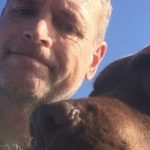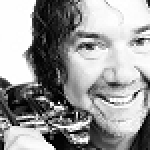WindWorks Trumpet Academy › Forums › WindWorks › Music and Science
Tagged: Nerdy Question
- This topic has 13 replies, 5 voices, and was last updated 2 years ago by
 hucky2311.
hucky2311.
-
AuthorPosts
-
-
20 July 2022 at 1:17 pm #145262
 hucky2311Participant
hucky2311ParticipantHi all,
My name is Nigel and those that have seen any of my posts will know I have a bit of a science background and what fascinates me most about WindWorks is the integration of fields of science not usually associated with playing music. Every method has physics, maths and physiology (even though some have the science wrong, it is still there) and that becomes the sole focus. Greg has included neuroscience, which is not unique to music, but consistent with learning a new skill and unlearning an ineffective skill.
Greg has also included psychology, which is a very broad area. I have studied Clinical, Organisational, Educational, Social and Sports Psychology at the post-graduate tertiary level but not Music Psychology. I have read articles (none that the science community would deem as valid) on Musicology, Music Psychology and Music Therapy. The common theme across all three areas is that the focus is on the effect of the listener not the psychology of actually playing, which is a critical factor for WindWorks. Of the fields of psychology, Educational and Sports Psychology seem to be of most relevance.
Is there anyone out there as nerdy as me that knows if Music Psychology has caught up with any analysis of the player? It seems to be a big gap in musical education and performance, but would be happy to be wrong.
Thanks -
20 July 2022 at 7:13 pm #145296
sporty.crosbie
ParticipantHey Nigel, Allan from New Zealand here, just became a member a few days ago and starting to go through the forum posts. Loved reading your post here regarding the phsychology and science underpinning Greg’s approach to practicing and playing yeah? I really resonate with his framework and find it very helpful as a newby to understand the mechanics and the psychology behind it all, along with the mindfullness of what’s going on, and how it feels as I’m learning and playing. So glad I’ve found WindWorks, lovin’it. Thanks again for your thought provking post. Allan
-
20 July 2022 at 9:04 pm #145301
 hucky2311Participant
hucky2311ParticipantThank you for those nice words.
I was trying to think of an analogy. The only thing I thought of is a bicycle is not much good without a rider. The ‘traditional’ style that most us probably learnt trumpet on is like bicycle and it works fine but is not good enough for pro rider. WindWorks trains both the rider and the bicycle as one entity rather as two separate entities.
Sorry, my nerdy side sometimes takes over.
Welcome to the team. I am in West Aus -
24 July 2022 at 4:03 am #145440
 Janet MyersParticipant
Janet MyersParticipantGood post, Nigel. Thanks.
Yes, Greg’s teaching methods are quite well rounded.
As someone who is now suffering from Embouchure Focal Dystonia (coming up on a year now), addressing all aspects of playing is essential, whether you have Dystonia or not. My decline seems to have finally hit bottom and I have found myself thinking at times that a psychologist would have been helpful along the way. Where did I see that sentence about Dystonia? “The death of the player you once were”? That’s real. It’s a hard death. I think I have finally come to terms with this and am ready to let go of the past and do the work to dig myself out of the Dystonia grave and learn to play again. Sadly, the past — my 1.0 brain — is fighting a tremendous battle to not let go. It has extraordinarily entrenched neural pathways. (I did that to myself by reinforcing those pathways daily over decades.)
If any of you are questioning the validity of Greg’s methods — don’t. Commit to it and do the work. I believe that it will save you from the heartache that can come when other methods you’ve used finally fail.
-
24 July 2022 at 10:37 am #145442
 hucky2311Participant
hucky2311ParticipantHi Janet,
I am sorry about your Dystonia. They should write in method books “keep playing this way and you will probably develop Dystonia, resulting in the symptoms of grief at losing your ability to play”.
What I like about Greg’s method is that the Science is correct. The physics is right and Greg has researched that credibly with UNSW and others. The physiology aligns with physics of “Body’s Concert Hall” and sympathetic oscillation and clearly defining the aperture and tightening the corners with lateral movement rather than vertical. The maths doesn’t change. Bringing in the concept of neuroscience is the first time I have seen it specifically used for this skill. Neural Pathway development and neuralplasticity is in any method (just not mentioned or understood) which is why 1.0 is hard to change for experienced players, but because of neural plasticity we can change to 2.0. I like the way Greg has overtly referenced it and emphasises not to rush because new neural pathways take time to develop. Greg brings in the psychology of playing reinforcing that anyone can play all over the instrument but also being able to close your eyes and feel (I find it useful to be able to isolate a feeling good or bad and name it). While we eventually want those feelings embedded in the sub-conscious, identifying them in the conscious mind while learning (process stage) will theoretically speed the development of the neural pathways.
I have no doubts about Greg’s methodology, it all stacks up. I have a problem with the field of Psychology. When we put music and psychology together, the concept very quickly turn into a Therapy, a modality of treatment, rather than a mechanism to assist the musician. Something akin to Sports Psychology, but for musicians.
Maybe a good Research project….maybe I could do a collaboration with my daughter (she is a research neuroscientist and part time brass player).
Thanks
Nigel -
24 July 2022 at 12:37 pm #145445
 Janet MyersParticipant
Janet MyersParticipantHi, Nigel,
I also have a problem with the field of psychology. I have not yet met one person who actually was healed of a traumatic emotional event through psychology. The best I’ve seen accomplished is that the injured person only learns to better cope with their trauma. Not healed, just better coping skills. What a waste of time and money.
I think I have come through this first year of my Dystonia experience in many ways a better person. My identity is no longer derived from being a trumpet player and I no longer have the need to prove myself to myself or to anyone else. This is actually quite freeing because I had an enormous pile of ego that I used to carry around. (It recently died with the last of my trumpet skills.) The peace that has come out of dumping that pile has been surprising.
There are two concepts that I am now taking to heart — “no excuses” and “nothing to prove”. I haven’t yet had opportunity to put these concepts in action, but I suspect the next lesson I have with Greg will be the litmus test for that. (If I get defensive in any way during a lesson I’ll know I still have a ways to go.)
I have decided that it would not be healthy for me to ever again list off past accomplishments or my list of former instructors. Doing so would violate the “nothing to prove” concept I have adopted. (I might make a rare exception to tell this stuff as part of explaining my Dystonia experience. I hope not.) I also had to decide whether or not to continue with trumpet playing. I came very close to quitting, but I’ve decided to take on the challenge and put myself through the long process of fighting off nasty 1.0 brain to get to 2.0 brain. I agree with adding your disclaimer: “keep playing this way and you will probably develop Dystonia, resulting in the symptoms of grief at losing your ability to play” to many trumpet playing methods.
If you should decide to research the possibility of developing a Musicians Psychology concept, I would be delighted to hear what you discover.
All the best,
Janet -
24 July 2022 at 3:45 pm #145449
patricknowland9
ParticipantHi Janet,
Thank you for sharing some of your experiences with dystonia. I can relate to a lot of what you have said and it has taken a fair while to understand what has been going on for me and to accept “the death of the player I used to be”.
I have found that my 1.0 brain was entrenched in survival mode and was motivated to satisfy unsatisfied needs in an unhealthy way. I have found this survival mode programming has been a factor in the need to prove myself. In going through Greg’s course I have gotten to the point where I can now see my brain switching over to ‘me 2.0’ which is in a place of calm. When this doesn’t happen and 1.0 is clinging on it has been really beneficial to remind myself that the 1.0 programming served a purpose in a time I don’t remember and to thank it for serving that purpose (whatever it was) but that it doesn’t need to serve that purpose anymore, the threat has passed. An analogy would be: A lifeguard saving a small child from drowning, then saving that same person when they are an adult and a competent swimmer. The child needed ‘saving’ but the adult does not with the lifeguard being the 1.0 brain. So the 1.0 wiring (lifeguard) served a purpose of allowing the person to survive but is now getting in the way of allowing the person to thrive. By thanking my 1.0 brain (personified as the lifeguard) I can acknowledged that it exists and treat it with a loving kindness that brings my nervous system out of survival mode and allows my new 2.0 brain to do its thing. While I still have my moments, this approach has allowed me to move beyond ‘fighting’ myself and the need to prove myself or be perfect.
All of this goes on before even getting to the instrument or even any of the exercises that have anything to do with playing or Greg’s course. I believe finding this place of calm is crucial in simply building a healthy relationship with one’s self and allows one to find states of flow which I believe is one of the goals in performance psychology.
I appreciate that dystonia is being talked about more and more and to hear how others are healing and progressing with it. I look forward to hearing more from you and others!
All the best,
Patrick 🙂 -
24 July 2022 at 3:51 pm #145450
 hucky2311Participant
hucky2311ParticipantHi Janet,
I am glad you are adopting a ‘no excuses’ and ‘nothing to prove’ philosophy and giving 2.0 a go. To be able to do that and dump the ego would not have been an easy process to undertake and I am glad you feel less burdened and free.
The problem with the general field of psychology is that not all psychologists are not created equal. For trauma recovery, you are best off with a Clinical Psychologist with a trauma therapy background, but I would guess most (unless they were musicians) wouldn’t fully grasp the magnitude of your loss. Also, trauma is not a condition that is ever generally healed, it is managed and treated, but not healed. This obviously depends on the person and impact of the trauma. I think therapy by the right person is a good adjunct to a multi disciplinary medical team. I have several permanent chronic physical and mental conditions, one of which is PTSD. I have seen about half a dozen psychologists and only one had both the right skill set and I could develop a rapport.
I was thinking along the lines of Sport Psychology for Musicians. Sport Psychology is the study of psychological factors associated with participation and performance in sport. The main purpose of Sport Psychology is to enhance an individual’s athletic performance. Mental skills and strategies help athletes concentrate better, deal more effectively with competitive stress, and practice and train more efficiently. What many athlete’s fail to realise is that mental preparation is just as important as the physical. The brain can be trained in the same way physical and technical aspects can. This is much of the same mindset of Greg and WindWorks.
We will see where we end up. I really hope you can play the trumpet again, with Greg’s help.
Thanks
Nigel
-
24 July 2022 at 4:15 pm #145451
 Greg SpenceKeymaster
Greg SpenceKeymasterThis is such an incredibly important thread and I thank all of you for contributing. I am working on a website to delve into this topic a lot more deeply.
Much respect!!!!
Greg -
25 July 2022 at 9:45 am #145503
 Janet MyersParticipant
Janet MyersParticipantI appreciate everyone’s well thought out responses immensely. I like your analogy, Patrick, and will try that. Perhaps taking a kinder view of the 1.0 brain will calm it enough to go away easier. Right now, it feels more like I’m trying to fend off a very hungry great white shark.
-
25 July 2022 at 6:45 pm #145533
 Janet MyersParticipant
Janet MyersParticipantPatrick!!!
Thank you! I tried your approach and I do believe it worked! Of course, many issues are yet to be overcome, but my 1.0 brain seems to have lost a few teeth. The real test will be picking up the horn again in about 8 hours. Typically, my experience is that a good day is followed by a bad one. A really good day is followed by a REALLY bad one. (It has been a proportionate trade off.) That being my usual experience, I’m hoping for an exception to the pattern and find I get another good day!
Janet
-
26 July 2022 at 3:02 pm #145580
 hucky2311Participant
hucky2311ParticipantGreg,
I think at some point you may need to make a minor adjustment to the Andante Ab Singing C Step 2 video as a result of your findings at UNSW Acoustic’s lab. At about the 1-minute mark you talk about A440 and the lip needing to oscillate 440 times per second. My understanding from UNSW is that although the frequency is 440Hz, the lip does not need to oscillate at that rate to produce that pitch.Nigel
-
26 July 2022 at 4:40 pm #145585
patricknowland9
ParticipantJanet! Yay!
I’m very happy for you! Tomorrow will just be another opportunity to thank the lifeguard 🙂
All the best,
Patrick 🙂
-
26 July 2022 at 4:45 pm #145586
 hucky2311Participant
hucky2311ParticipantThis post was a standalone post that I responded to. I thought the science was interesting, so I reposted it here with my response.
Hi Greg
It was after Midnight here in Germany when Sunday Session 2 ended. I went to bed with some really cool impressions in my head. While I was sleeping, something very interesting happened. I dreamd that I could play the trumpet so easily, so simply, almost without doing anything. The trumpet played by itself. I put my trumpet to my lips – barely touching the mouthpiece and created a nice warm soft and round sound with just a touch of air. Quietly from the lowerto the upper register. Wow! In the dream, a quiet joy came over me. When I woke up I knew that the WindWorks method had made its way into my subconscious…
Thanks Greg!My reply:
I love that dream and from a scientific perspective, don’t underestimate the role of dream science and sleep in embedding the concepts.
The brain has been underestimated for so long. Even though certain scientists developed hypotheses in the early 1900s around neuroplasticity, mainstream scientists used to believe up until the 1960s that once the brain was fully developed, it was no longer malleable. A bunch of research has been done since and new developments are happening all the time to the present day.
Memory replay may show up in our dreams. Memories move from temporary storage in the hippocampus area in the brain that is thought to be important for short-term memory to permanent storage in other parts of the brain. This makes the memories easier to remember later. Memories improve with sleep because the memories are replayed during sleep. So, even if you don’t dream a cool dream like yours, the memory will still move from the hippocampus. From a psychological perspective, a dream like that is really good around ongoing motivation.
Sorry, Science nerd here.
Thanks
Nigel
-
-
AuthorPosts
- You must be logged in to reply to this topic.
Recent topics
-
Question of Curiosity – To Teeth or Not To Teeth
by
clawsonk123
1 month, 3 weeks ago -
1.O / 2.0 routine
by
jice.gif
2 months, 3 weeks ago -
Abdominal surgery and time off the trumpet
by
DQ
9 months, 3 weeks ago -
Allegro or Presto Practice Routine
by
djm297
10 months, 2 weeks ago -
Tongue lock – Throat lock
by
Ivo Carrabs
11 months, 1 week ago
